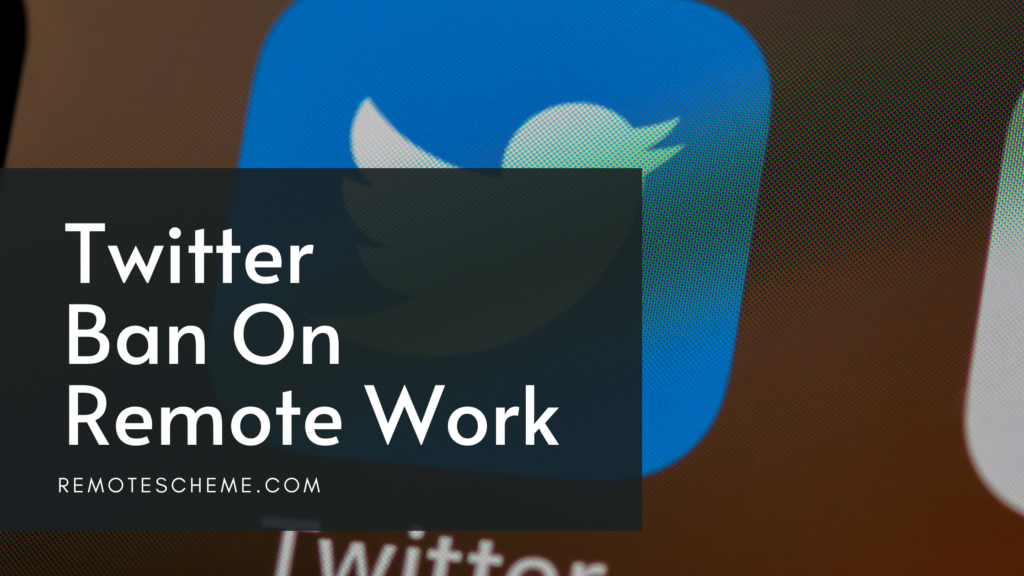Elon Musk has been making headlines for a lot of reasons lately. Most of them are tied to his takeover of Twitter and how he’s changed the way it operates in-house.
Notably, one of the biggest changes he has made has to do with remote work.
During the bulk of the Covid-19 pandemic, Twitter shifted to a largely remote working environment that excited employees and opened up new opportunities.
Upon Elon’s acquisition of the company, that ability was immediately stripped, and all work was returned to the office.
This has had major implications for workers.
Employees who were leveraging remote work to improve their work-life balance have had to abruptly return to an inefficient in-office work environment, they’ve lost the ability to effectively adopt side hustles, and they’ve generally had their entire work experience uprooted and flipped upside down with one abrupt decision.
There are some key lessons to learn from this if you’re a remote worker because while the headlines are focused on Elon, it’s actually something that affects remote workers across practically every industry.
You can have your life upended, all the perks you’ve grown to love can disappear, and you can even end up with a bunch of equipment and housing investments you can’t even leverage in the blink of an eye.
We’re going to highlight some of the key lessons remote workers should be learning from the situation at Twitter; this will give you some things to think about, potentially prepare for, and maybe even use to guide your career trajectory moving forward.
How Twitter Highlighted Positive Opportunities And Their Drawbacks
First, we want to talk about the positives that you can learn from the Twitter situation. It’s one of the most notable inspirations for the remote work boom, and as one of the biggest corporate names in the world, it set the tone for remote workers everywhere.
#1. It Opened Endless Opportunities For Workers
One of the biggest weaknesses of traditional employment is that there’s not enough time to take on side hustles or pursue other interests.
Between commuting, being forced to focus solely on one thing in the office, and returning home drained of energy, side hustles just aren’t an option for many people.
Twitter’s employees immediately started leveraging their remote work opportunities to step outside of Twitter and pursue their real interests without damaging their professional performance.
Workers enjoyed starting side gigs in the arts, starting their own retail businesses, and more that they didn’t have time to do before.
As a side-effect of Musk’s decision, those employees have suddenly seen their side hustles fall apart with their free time and energy once again being diverted to the office.
This is something to watch out for in any industry because if that possibility is suddenly removed, you’ve invested time, money, and effort into something that might not be successful enough to prioritize, yet.
#2. Travel And Morale Boomed
Twitter employees didn’t stay home in mass and enjoy working from their pajamas every day. They went a step above and went on record as taking the remote work opportunity to see and do more.
When you’re relegated to an office setting all day, you can’t plan a couple’s getaway to another city or move to a new location without utilizing sick days and vacation days or getting a new job entirely.
Remote work allowed employees to incorporate travel into their daily work schedules.
This led to employees either moving to lower-cost-of-living areas to maximize the effectiveness of their high pay grades or simply enjoying new sights while still performing their job duties.
As a result, morale boomed, and employees felt more fulfilled with their jobs. Many were even making exorbitant incomes after relocating to cheaper living areas without sacrificing their big-company income.
Since Elon has removed this option, employees who relocated to lower-cost-of-living areas have either had to move back to their previous locations or quit working for the company entirely, and they’ve had a drop in morale as all the benefits they’ve enjoyed relating to travel and freedom of living arrangements have suddenly been taken away from them.
#3. Equipment Investments Were Wasted
When Twitter allowed employees to work remotely, there was a need to buy equipment that wasn’t necessarily crucial to the daily lives of employees.
Printers, new computers, work-centric phones, office supplies, and more were purchased to allow employees to maximize their productivity and meet the requirements of their jobs.
This wasn’t a big deal considering it was making their dreams of earning money from home come true, but when that opportunity was taken away, they were suddenly left with fairly expensive investments that weren’t doing them any good.
That equates to wasted expenses that were made out of pocket.
This is a risk that everyone will face when working remotely. You can have your right to work remotely revoked by the company whenever they feel like it, or even if you’re working remotely for your own endeavor, that endeavor can fail.
Twitter highlighted this risk exceptionally, and it’s something all remote workers should take note of and seriously consider.
The Most Important Lesson To Learn From Twitter’s Shift
We don’t want to sound negative about the concept of working remotely.
It does present far more benefits than it does drawbacks, but Twitter highlighted something important; you cannot trust that your remote employer will continue the remote work model forever.
You might suddenly be required to participate in in-office work conditions, and that can completely derail your lifestyle and potential capabilities.
It might even cost you a considerable amount of resources if you’re taking advantage of cost-of-living differences with a new location and the personal acquisition of work equipment.
This can be mitigated or even overcome by using remote work opportunities to build your own at-home working opportunity free of a larger company, but there is always going to be the risk of your remote work dreams collapsing on themselves and forcing major life changes.
Prepare yourself to be flexible if a remote work arrangement is removed, going remote for companies that are embracing remote work in the long-term, and preferably, making sure you have a way to continue your remote work lifestyle in the event that your employer changes their policies.
You can avoid the serious drawbacks that Twitter’s employees faced after Musk’s takeover such as lost resources, relocation problems, job loss, and more by being cautious, resourceful, and flexible.




